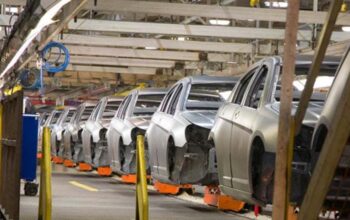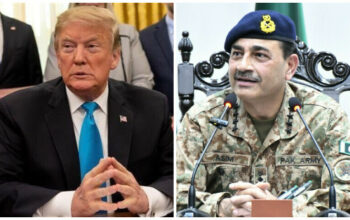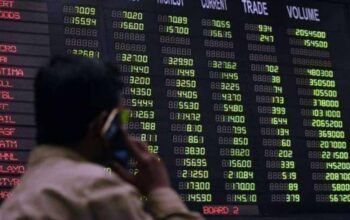By Staff Reporter
KARACHI: Inflation in February hit the highest in 50 years on runaway food, beverage and transportation prices, official data showed on Wednesday, highlighting the challenge for the central bank as the country reels under its worst financial crisis in over 75 years of history.
Analysts said inflation accelerated for a third month in February after the government raised energy prices, increased taxes and let the currency weaken to meet the International Monetary Fund’s loan conditions.
Consumer price index (CPI) jumped 31.5 percent in February year-on-year Consumer prices rose 31.55 percent from a year earlier, Pakistan Bureaus of Statistics said. That compares with a median estimate for a 30.9 percent gain in a market survey.
February’s inflation number is reportedly highest since 1974. In January, the CPI increased 27.55 percent year-on-year.
Transport prices rose 50.5 percent, while food inflation quickened 45 percent year-on-year. Clothing and footwear prices accelerated 17 percent and housing, water and electricity costs rose at 13.6 percent. Alcoholic beverage and tobacco prices jumped 47.59 percent due to an increased tax on cigarettes.
Last month, the government passed a supplementary bill that lifted a highly inflationary goods and services tax to 18 percent from 17 percent to win back a stalled IMF bailout programme.
Analysts said the entire impact of the IMF-backed measures has still not kicked in and the inflation will stay elevated until May before it starts to drop gradually.
“This is still not the peak. March is expected to be higher. Food prices are expected to go even higher as we approach Ramazan,” said Fahad Rauf, head of research at brokerage Ismail Iqbal Securities.
Analyst Mustafa Pasha at brokerage Lakson Investments, said inflation is expected to continue rising in the months ahead as IMF-mandated structural adjustments and currency devaluation filter through the supply chain.
The government is undertaking belt tightening, aims to increase revenues though taxes, and has allowed the rupee to depreciate as it thrashes out a deal with the IMF to secure more than $1 billion in funding.
Core inflation increased 17.1 percent and 21.5 percent year-on-year for urban and rural centres respectively.
Analysts said core inflation is something the central bank will need to keep an eye on when deciding the quantum of increase for the policy rate and an accelerating rate of core inflation further raises the possibility of a bigger hike.
The central bank’s monetary policy committee will review policy rate in a meeting rescheduled to March 2. Analysts expect the State Bank of Pakistan to raise its key policy rate by at least 200 basis points in an off-cycle meeting on Thursday.
The SBP raised its benchmark interest rate to 17 percent in January, the highest in more than 24 years, after a cumulative 625-basis-point increase in 2022 to rein in skyrocketing prices.
Copyright © 2021 Independent Pakistan | All rights reserved




